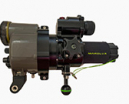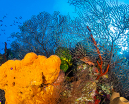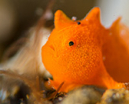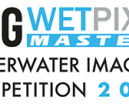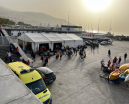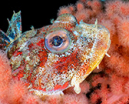Articles

Underwater photography at the Xposure Show, London
Wetpixel member Josh Weller is exhibiting some of his latest photographs at the Xposure Show at The Rag Factory, London, UK from 24 to 26 May. Josh’s images will be alongside other more mainstream photographic work including fashion and still life.
Josh is holding a private viewing of his work to which Wetpixel members are invited (with an open bar!) on 24 May at 7pm.

Call for entries: San Diego UnderSea Film Festival
The twelfth annual San Diego UnderSea Film Festival (SDUFEX) is now calling for entries. The event will be held on 9 and 10 September, 2011 at the Qualcomm Hall, San Diego.
Full details and entry guidelines are available on the SDUFEX website, and the deadline for entries is 18 July.

EdgeDiveTech upgrades Ultra Series video lights
EdgeDiveTech has announced that it has added an additional dimmer switch to its Ultra Series video light canister. This allows the user to fine-tune the output of each light head independently.
The Ultra Series video lights feature an output of 18,000 total lumens, via two 100 watt LED heads each fitted with a “Pulse Width Modulator” controller.

Review: Nikon Coolpix P7000 and Fantasea FP7000 housing
Tal Mor has reviewed the Nikon Coolpix P7000 compact camera and the Fantasea FP7000 housing. He finds that overall the combination represents excellent value in a small and light package with excellent image quality, although it still seems to have a common problem associated with compacts: Long write times with RAW files.

Ginnie Springs: Sympathy with the Devil on DiveFilm HD
DiveFilm HD Video has released Rusty Sanoian’s Florida cave and cavern scooter dive video, “Ginnie Springs, Diving with the Devil” as a high-definition podcast on iTunes. The film was shot entirely with a Canon 5DMkII mounted onto a DiveX Cuda scooter. Original soundtrack music is by Jim Decker.
DiveFilm HD Video podcasts are available as free downloads on iTunes and are produced in association with Wetpixel.com.

Test results for Canon SLR video ISO settings on Vimeo
Andrew Schär has published results of tests he has conducted using a Canon 60D in video mode at various ISO settings. It has been rumoured for some time, that Canon SLRs have a “sweet” ISO if the setting is 160 or a multiple thereof. The tests show that the best ISO’s to use for video, starting from lowest noise level to highest are as follows: 160, 320, 640, 100, 200, 400, 800, 1250, 125, 250, 500, 1000, 1600, 2500, 2000, 3200, 4000, 5000, 6400.
Interestingly, Andrew has found that 160 is also the best setting for still photography. The results of his test are published on Vimeo.

X-Ray International Magazine May issue available
X-Ray International Magazine issue 42 is out and available to download. It features articles by Nuno Sá on diving the Azores; Kelly LaClaire and Kate Clark on a dive trip to Grenada; Rémi Masson on freshwater diving in the River Rhône; Scott Johnson on Humpback Whales in the Dominican Republic; Lawson Wood on False Killer Whales in Dominica and Christian Skauge on space diving in Germany. Matt Weiss and Joseph Tepper write on composition in underwater photography and American textile artist Betty Busby shares her intriquite quilts of underwater scenes and marine life.
The magazine is available as a free pdf download.

EU to pay fishermen to catch plastic
Maria Damanaki, EU commissioner for fisheries, will unveil a trial project in the Mediterranean this month, which will see fishermen equipped with nets to round-up plastic detritus rather than their more customary catch. The plastic will then be recycled, and although the scheme will initially rely on subsidies, the aim is that the sale of the recyclable material will eventually meet the costs of the operation. The collection of plastic will also help prevent the damage that it causes to fish, marine animals and birds.
The Guardian goes on to report that Ms Damanaki will offer the scheme as an incentive to appease fisheries groups as she pushes forward to legislate against the wasteful practice of discarding by-catch. Two-thirds of the fish caught are currently discarded, usually dead, as fleets exceed their quota, unintentionally catch juveniles or species for which they lack a quota, or because they prioritize higher value fish and throw away lesser species.

